VOLATILE STATE
VOLATILE STATE
Iran in the Nuclear Age
David Oualaalou

This book is a publication of
Indiana University Press
Office of Scholarly Publishing
Herman B Wells Library 350
1320 East 10th Street
Bloomington, Indiana 47405 USA
iupress.indiana.edu
2018 by David Oualaalou
All rights reserved
No part of this book may be reproduced or utilized in any form or by any means, electronic or mechanical, including photocopying and recording, or by any information storage and retrieval system, without permission in writing from the publisher. The Association of American University Presses Resolution on Permissions constitutes the only exception to this prohibition.
 The paper used in this publication meets the minimum requirements of the American National Standard for Information SciencesPermanence of Paper for Printed Library Materials, ANSI Z39.48-1992.
The paper used in this publication meets the minimum requirements of the American National Standard for Information SciencesPermanence of Paper for Printed Library Materials, ANSI Z39.48-1992.
Manufactured in the United States of America
Cataloging information is available from the Library of Congress.
ISBN 978-0-253-02966-9 (cloth)
ISBN 978-0-253-03118-1 (paperback)
ISBN 978-0-253-03119-8 (ebook)
1 2 3 4 5 23 22 21 20 19 18
Contents
Preface
THE IDEA OF writing this book became more compelling after I completed my first one, The Ambiguous Foreign Policy of the United States toward the Muslim World: More than a Handshake. While researching scholarly material for my first book, I learned new perspectives on events evolving in the greater Middle East. Among the issues that captured my attention and interest is the United States continuing negotiations with Iran over the latters nuclear program. Research led me to question what will become of the Middle East when Iran becomes a nuclear state. The new insights and intellectual curiosity persuaded me to both express my thoughts and provide my own perspective on the future geopolitical landscape of the Middle East in postnuclear Iran.
This book, then, is about geopolitics and the future of international relations and US foreign policy toward both the Middle East and other major powers. A nuclear Iran in the Middle East, a region of always-dangerous flux and constantly shifting attitudes and energies on the global stage, will introduce new shifts in geopolitics and make international relations among major powers tenser. This result will affect not only the already tense relations among major world powers, mainly China, Russia, and the United States, but also among key regional players in the greater Middle East. A nuclear Iran introduces fundamental changes to a region where ambiguity, chaos, and violence are the orders of the day. In such a complex, often volatile region, relations between the United States and the region require careful attention to policy detailscertainly more than diplomatic exchange in a new geopolitical landscape.
Before I write further about this topic and my insights on it, let me share my own background and how it qualifies me to write on geopolitics in the Middle East and postnuclear Iran. I worked in the field with elite military forces for over ten years carrying out operations at the behest of US policy makers. I speak Arabic and French fluently, understand the dynamics of the Middle East, grasp the depth of its social and cultural interactions, and know, from both abstract and practical perspectives, how the regions internal politics work. This firsthand experience is necessary, in my opinion, to offer the most salient analysis of how a nuclear Iran will change geopolitical calculations in the region among both major powers and regional countries.
Conventional wisdom suggests the new geopolitical landscape in the Middle East postnuclear Iran allows the latter to flex its military, economic, and ideological muscles with the support and help of Russia and China. Given these realities, Iran is closer than ever to realizing its political objective: becoming a regional power with the prestige and influence to guide and impact the regions political course. Against this backdrop, I argue that the United States policy toward the region will have to adapt to these realities. Further, this policy will be tested like never before, especially when it comes to what kind of cooperation the United States undertakes with major powers in this new geopolitical environment. Will confrontation over energy resources in the Middle East trigger a military conflict? Alternatively, will the United States and other major powers, mainly China and Russia, follow a policy of appeasement to preserve peace and stability? Whatever the case may be, a nuclear Iran provides Russia and China the right platform on which to fortify their presence in the region and further challenge the much-declining American leadership and dominance of the last half century.
American foreign policy in the Middle East is marked by inconsistencies in its dealing with the region: the Iran-Iraq War, the invasion of Iraq, the civil war in Syria, the emergence of ISIS, the chaos in Yemen, and the political and security instability in Egypt, to name but a few. After all, American foreign policy affects the everyday lives and security of the inhabitants of Jordan, Iran, Turkey, Egypt, Iraq, Lebanon, Libya, Saudi Arabia, and Syria, among other nations. However, an intense rivalry among regional powers, mainly Iran and Saudi Arabia, marks the new postnuclear-Iran era. Further, other major powers will find it politically convenient ultimately to challenge the United States economically, militarily, diplomatically, and politically.
My writings include op-ed pieces on global affairs for the Slovak Atlantic Council, an affiliate of the European Atlantic Council, the Waco Tribune-Herald, South China Morning Post, and the Huffington Post. My articles have been translated into Arabic, Chinese, Farsi, French, German, Malay, Russian, Thai, Turkish, Spanish, and Vietnamese. In these articles, I address topics pertaining to international security, global affairs, relations among major powers, and ambiguous American foreign policy, among others. Occasionally, I describe what the geopolitical landscape in the Middle East might look like once Iran reaches an agreement with the United States over its nuclear program and the international community ends its economic sanctions and arms embargo on the Islamic republic.
This book is a work of scholarship, not an editorial; it informs not only people who keep up with current events but also students of American foreign policy, specifically those considering a career in international affairs. My analysis also draws from the writings of top scholars on the history, culture, and politics of Iran and the broader context of international relations, and from leading scholarship on American foreign policy in the region. The research herein is from top academic journals, books, and other scholarly writings. It should appeal to academics, foreign-policy professionals, and international affairs analysts. Although this work discusses unclassified or declassified documents, it does not and cannot offer factual evidence from classified sources.
My particular focus in this work attends to two important claims: (1) a nuclear Iran will inevitably spur nations like Turkey, Jordan, Egypt, the United Arab Emirates, and Saudi Arabia to pursue nuclear technology, thereby starting a nuclear arms race. Because of this geopolitical shift, major players will be forced to go back to the political drawing board to come up with new strategies; (2) the United States lacks the political will and vision to reconsider and reformulate its ill-conceived foreign policy in the Middle East and beyond. Suffice it to say, the ongoing turmoil in the region, which includes sectarian violence in Iraq, an ongoing civil war in Syria, upheaval in Yemen, the failed state of Libya, the social and political breakdown in Egypt, and the ongoing rift between Saudi Arabia and Iran, has not only heightened anxiety in the Middle East but also reinforced the notion of declining American leadership in the region. My concern lies in having China and Russia capitalize on US political weakness, obscure vision, and misaligned priorities while emboldening Iran through economic ventures, military upgrades, and diplomatic cover in the international forums.
Next page

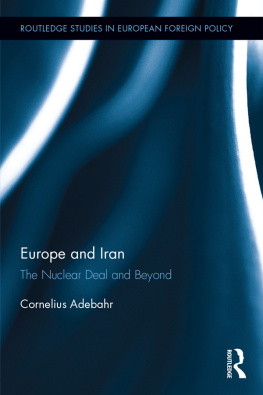
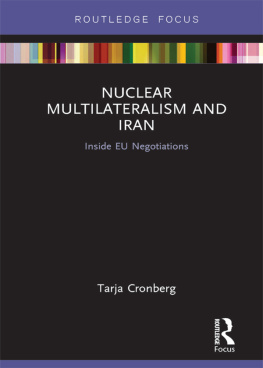
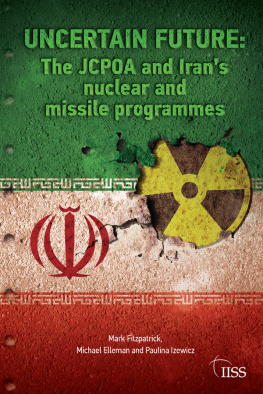
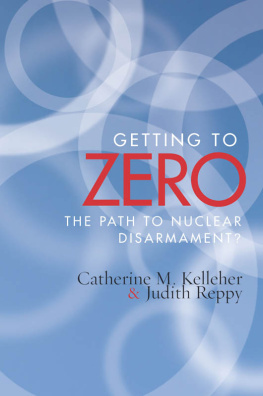
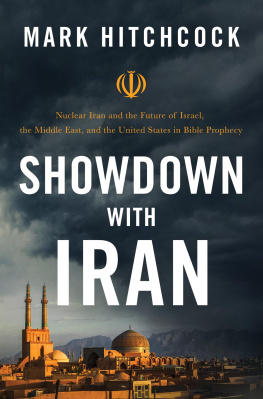
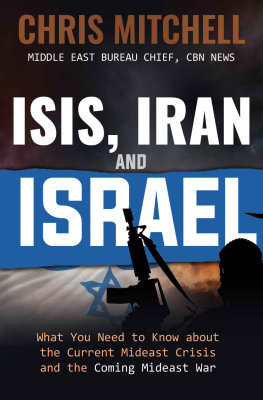
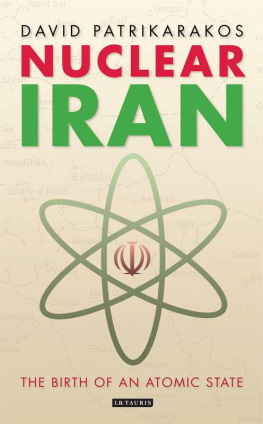
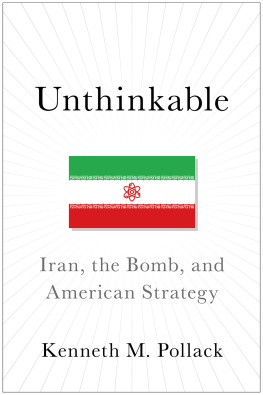

 The paper used in this publication meets the minimum requirements of the American National Standard for Information SciencesPermanence of Paper for Printed Library Materials, ANSI Z39.48-1992.
The paper used in this publication meets the minimum requirements of the American National Standard for Information SciencesPermanence of Paper for Printed Library Materials, ANSI Z39.48-1992.